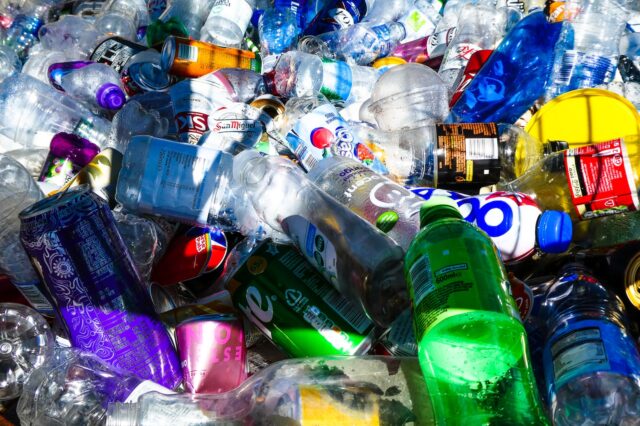
Have you ever thought about where all your trash ends up? While you may not see it, the amount of waste we produce is staggering and continues to grow. At the same time, global warming and environmental pollution are becoming critical problems that concern many individuals and organizations worldwide. You can take positive action towards these issues through proper waste management, beginning with recycling. Recycling has become an essential part of modern life and is an excellent way to reduce pollution and conserve resources. In this article, explains how recycling can reduce pollution, conserve resources, and provide benefits.
Reducing Pollution
When you throw your waste in the garbage bin, it goes to landfills, becoming a breeding ground for various pollutants, such as hazardous chemicals and greenhouse gases. When these pollutants mix with the surrounding groundwater, they can contaminate it, making it unsafe. Recycling helps to reduce the number of pollutants that end up in our landfills and water systems. By separating recyclable materials from garbage, they do not end up mixed with other waste, and the recycling facilities can safely process them without producing .
Conserving Resources
Many of the materials we use daily are non-renewable resources, and producing them requires energy and resources that may be limited. Recycling helps to preserve the Earth’s natural resources by reducing the need for new raw materials. For instance, recycling a single aluminum can save enough energy to power a TV for up to three hours. By reusing paper, we save trees, reducing the need for logging, which, in turn, conserves habitats for wildlife. Recycling conserves resources, helping our planet sustain the needs of its inhabitants.
Economic Benefits
Recycling creates job opportunities for numerous people, boosts the economy, and provides a significant source of income. In the United States, the recycling industry generates at least $200 billion in revenue yearly, employs over a million people, and saves cities and towns money by reducing landfill taxes and other waste management costs. Therefore, recycling offers economic and environmental benefits, making it an excellent investment for communities.
Energy-Saving
Producing new products uses a lot of energy, and the more we recycle materials, the less energy is needed to make new items. Recycling conserves energy by avoiding extracting raw materials, transporting them, refining them, and transforming them into finished products. Using recycled materials also reduces the energy to mine, refine, and process raw materials. This energy-saving aspect of recycling is crucial since it helps reduce harmful emissions polluting the environment.
Reducing Landfill Waste
Without recycling, more waste ends up in landfills, taking up the limited space. Being an environmentally conscious person means you need to reduce the amount of garbage and conserve landfill space. When we recycle, we reduce the amount of waste in landfills, which reduces the space required to dispose of garbage, which is crucial, particularly in urban areas. When landfills fill up, authorities must open new ones, often in remote locations, increasing costs and transportation distances.
Conserving Water
Recycling conserves water by reducing the water required for manufacturing new products. For example, producing recycled paper requires 55% less water than making new paper. By conserving water, we reduce the strain on our water resources and help ensure access to clean water for all.
Protects Wildlife And Ecosystem
Recycling helps protect wildlife and ecosystems. When waste ends up in landfills or oceans, it can harm wildlife and ecosystems. Recycling reduces the amount of waste in landfills and oceans, thus protecting wildlife and ecosystems.
Promoting Sustainability
Recycling promotes sustainability by conserving resources and reducing waste. This helps us live within the limits of our planet and ensure a sustainable future for generations to come. Promoting like recycling can reduce our environmental impact and create a healthier world.
Encouraging Innovation
Recycling plays a vital role in fostering innovation within the manufacturing industry. By embracing recycled materials, companies contribute to a more sustainable future and open up opportunities to create innovative and eco-friendly products. For instance, using recycled plastic to produce various items such as park benches, decking, and playground equipment showcases how waste can be transformed into valuable resources, reducing the strain on natural resources and minimizing environmental impact. This practice promotes a circular economy and inspires other industries to explore similar sustainable solutions, leading to a positive ripple effect across multiple sectors.
Fostering Community
Recycling fosters community by bringing people together and promoting environmental stewardship. Recycling programs rely on the participation of individuals and communities to be successful. Vikki Gerrard La Crosse says this can create a sense of shared responsibility and contribute to a stronger sense of community.
Conclusion
Vikki Gerrard La Crosse WI, emphasizes that recycling is a simple yet effective way to make a difference in our environment. Recycling has become essential to sustainability practices by reducing pollution, conserving resources, and saving energy. It’s a benevolent act to the environment, society, and the economy. Recycling, therefore, should be part of everyone’s daily routine, including individuals, corporations and governments. We must strive to implement recycling policies that promote longer-lasting sustainability solutions. Doing so can contribute to a better future and a cleaner, more sustainable planet. Let us all commit to going green by recycling today and every day.